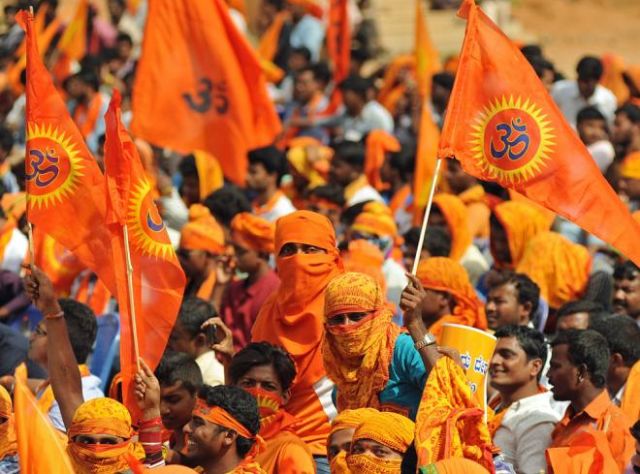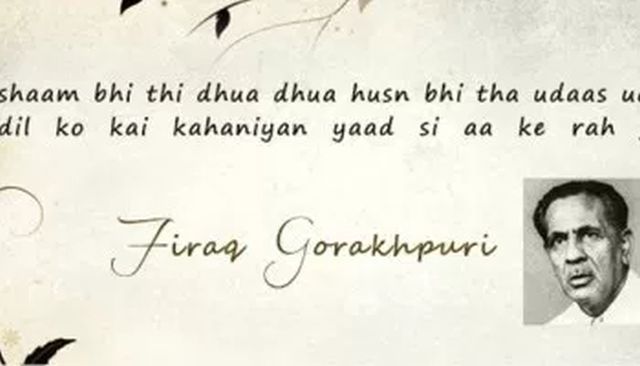
by Editor | May 25, 2021 | News, Politics
 New Delhi : A bill on making Triple Talaq a punishable offence and another one to give constitutional status to the backward classes panel is set to be introduced in the Lok Sabha next week, Parliamentary Affairs Minister Ananth Kumar said on Thursday.
New Delhi : A bill on making Triple Talaq a punishable offence and another one to give constitutional status to the backward classes panel is set to be introduced in the Lok Sabha next week, Parliamentary Affairs Minister Ananth Kumar said on Thursday.
The Muslim Women (Protection of Rights on Marriage) Bill, 2017, provides for three-year imprisonment and fine for men who orally divorce their wives and also gives such Muslim women the right to seek maintenance.
The Constitution (123rd Amendment) Bill pertains to conferring constitutional status on the National Commission for Backward Classes.
The bill, passed by the Lok Sabha in April, was sent to the Rajya Sabha which passed the bill with amendments. Hence, the government will now reintroduce the bill.
“In case of a constitution amendment bill, the Lok Sabha and the Rajya Sabha cannot differ. So the bill has to be reintroduced,” the Minister said.
Government sources said some minor changes were made to the bill.
—IANS

by Editor | May 25, 2021 | Muslim World

Pakistani pilgrims ‘Zayarins’ arrive at Roorkee amid tight security for annual Urs
New Delhi : A total of 152 Pakistani pilgrims are visiting the Kalyar Sharif shrine in Uttarakhand for the annual Urs of Hazrat Khawaja Allauddin Ali Ahmed Sabir.
The Pakistanis, accompanied by officials of the Ministry of Religious Affairs and the Pakistan High Commission, laid the traditional ‘chaddar’ at Rouza Sharif and offered ‘dua’, a Pakistan High Commission statement here.
The visit follows a visit by group of 84 pilgrims who visited Sirhand Sharif for the annual Urs of Sheikh Ahmed Farooqi Sirhindi, Mujaddid Alif Sani, from November 16 to 23 in Fatehgarh Sahib in Punjab.
Meanwhile, 119 Hindu pilgrims are visiting Pakistan for the Shree Katas Raj Dham from December 1 to 7.
Earlier, 107 Hindu pilgrims visited Pakistan to attend the 309th birthday celebration of Shiv Avtari Satguru Sant Shadaram Sahib at Sukkur from November 19 to 30.
Over 2,600 Sikh pilgrims visited Pakistan in connection with the 548th birthday anniversary of Baba Guru Nanak (November 2-11).
Islamabad remains committed to facilitating visits of pilgrims as part of people-to-people exchanges between Pakistan and India, the statement said.
—IANS

by Editor | May 25, 2021 | News, Politics
 New Delhi : India entered into “saffron age” due to Ram Janmbhoomi movement and construction of a grand Ram temple at Ayodhya would begin next year in 2018, VHP leader Surendra Jain said on Saturday
New Delhi : India entered into “saffron age” due to Ram Janmbhoomi movement and construction of a grand Ram temple at Ayodhya would begin next year in 2018, VHP leader Surendra Jain said on Saturday
Jain, the VHP’s joint General Secretary, was speaking here at a conference on the subject titled “The Ram Janmbhoomi Movement: A Renaissance” at NDMC convention centre in central Delhi.
“India entered into the saffron age because of Ram Janmbhoomi movement and is headed to become world’s superpower. The participation of 16 crore people during different stages of the movement made it world’s largest movement,” he said.
“This movement became a renaissance and invoking the pride of Hindus and country’s potential. The construction of a grand Ram Temple at Ayodhya will begin in 2018.”
Addressing the conference, VHP Spokesperson Vijay Shankar Tiwary said that this renaissance redefined the nationalism and established that India is known as a country of Maharana Pratap and Chatrapati Shivaji and not of Babar, Mahmud of Ghazni and Ghauri.
Gyanendra Bartaria, a Prasar Bharti advisor, said that Hinduism is nationalism.
—IANS

by Editor | May 25, 2021 | News, Politics
 New Delhi : Prime Minister Narendra Modi on Monday said those who clean our streets should have the first claim to say ‘Vande Mataram’.
New Delhi : Prime Minister Narendra Modi on Monday said those who clean our streets should have the first claim to say ‘Vande Mataram’.
Speaking on the occasion of 125th anniversary of Swami Vivekananda’s 1893 Parliament of Religions address in Chicago, Modi wondered whether we should have the right to say ‘Vande Mataram’ after what we do to our streets through indiscriminate littering and spitting.
“If there is anyone who should have the right to say ‘Vande Mataram’ before anyone else, it is those children of Mother India who perform the job of cleaning our streets,” he said.
“Whether we clean our surroundings or not, we do not have the right to litter it,” he added.
Modi said that he was proud of women who refuse to get married into families whose houses do not have toilets and called for building of toilets before places of worships.
“Toilets first, temples later,” said the Prime Minister.
In his tribute to the sage, he said Vivekananda was a visionary.
“Who would have thought anyone would be interested in celebrating a 125-year-old speech… Just with a few words, a youngster from India won over the world and showed it the power of oneness,” Modi said about the prescience of the social reformer.
—IANS

by Editor | May 25, 2021 | Opinions

For representational purpose only
By Vikas Datta,
We may be familiar with the literary concept of ‘poetic justice’, though in this modern technological and globalised age, we are more liable to call it ‘laser-guided karma’. But as the original term suggests, we desire not only justice but justice that happens in a “poetic” manner. Does the poetic form of literature treat advice the same way?
Poets will undoubtedly agree, but so do others too. While Samuel Taylor Coleridge held: “No man was ever yet a great poet without being at the same time a profound philosopher. For poetry is the blossom and the fragrance of all human knowledge, human thoughts, human passions, emotions, language”, an iconic US President also stressed its importance beyond literature.
“When power leads man towards arrogance, poetry reminds him of his limitations. When power narrows the areas of man’s concern, poetry reminds him of the richness and diversity of his existence. When power corrupts, poetry cleanses…” said John F. Kennedy at Massachusetts’ Amherst College, barely a month before his assassination.
But while lessons from “wisdom married to immortal verse”, as Wordsworth termed poetry, abound in Western literature, does our poetic tradition, especially of the courtly and polished Urdu, have similar enlightening and edifying insights into life?
Definitely, as some couplets from its greatest masters show. In these, we can find everything from the fundamental tenet and purpose of religions, the making of India and its composite ‘ganga-jamuni’ culture, the price of existence, the importance (or lack thereof) of the individual, how to appraise fellow humans and what celestial portents indicate.
Though a chronological approach may not be feasible, let’s begin with the earliest of them, the first well-known poet of Urdu, for Mir Taqi ‘Mir’ touches on a subject that has been extremely divisive but he very simply and extremely tellingly brings out its fundamental similarity: “Us ke farogh-e-husn se jhamke hai sab mein noor/Sham-e-haram ho ya ho diya Somnath ka“.
And in the next century, Syed Akbar Hasan Rizvi ‘Akbar Allahabadi’ sought to remind custodians of both of their right (hidden) place in a modern, multi-confessional nation: “Agar mazhab khalal-andaz hai mulki maqasid mein/To shaikh-o-barhaman pinhan rahen dair-o-masajid mein“.
On the other hand, the making of India, with its openness to all kinds of people, is as simply but eloquently explained by Raghupati Sahay “Firaq Gorakhpuri’ in: “Sar-zameen-e-Hind par aqwaam-e-alam ke ‘Firaq’/Qafile baste gaye Hindustan banta gaya“.
All these sentiments however can be better understood and practised once we imbue life’s proper lessons. And here we need those which speak to us as individuals, and there are plenty.
First of all, we must learn to live on reason, not blind faith for Faiz Ahmed ‘Faiz’ noted: “Dast-e-falak mein gardish-e-taqdeer to nahi/Dast-e-falak mein gardish-e-ayyam hi to hai” (or, in simpler terms, the sky doesn’t show fate, but the promise of a new day).
How much importance should we pay our life, is angrily answered by Shaukat Ali Khan ‘Fani Badayuni’, who perhaps taking a cue from Omar Khayyam’s “… Make Game of that which makes as much of Thee” (quatrain XLV, Fitzgerald’s first translation), says: “Zindagi meri bala jaane, mehngi hai ya sasti hai/Muft mile to maut na lun, hasti ki kya hasti hai“.
We must also not look for continuous, unalloyed happiness in it as a matter of right for Mirza Asadullah Khan ‘Ghalib’, in one of his greatest ghazals, tells us: “Qaid-e-hayat o band-e-gham asl mein dono ek hain/Maut se pahle aadmi gham se najat paaye kyun“, or for that matter, think too much of our importance in it: “Ghalib-e-khasta ke baghair kaun se kaam band hai/Roiye zaar zaar kya kijiye haaye haaye kyun“.
But if we had to look for the most useful lesson of umanity, we couldn’t do better that look at the poetry of a monarch, who was himself the monarch of poetry, the unfortunate Bahadur Shah ‘Zafar’, the last of Mughals, who said: “Na thi haal ki jab hamen apni khabar rahe dekhte auron ke aib-o-hunar/Padi apni buraiyon par jo nazar to nigaah mein koi bura na raha“.
He also gave his standard to judge his fellow humans: “Zafar aadmi us ko na janiyega vo ho kaisa hi sahab-e-fahm-o-zaka/Jise aish mein yaad-e-Khuda na rahi jise taish mein khauf-e-Khuda na raha“.
And while we could end with him, his ustad Sheikh Mohammad Ibrahim ‘Zauq’ deserves this honour. And he also has some good advice: “Behtar to hai yehi ki na duniya se dil lage/Par kya karen jo kaam na bedillagi chale“, or even “Duniya ne kis ka raah-e-fana mein diya hai saath/Tum bhi chale chalo yunhi jab tak chali chale“.
That is the best cue to end.
(Vikas Datta is an Associate Editor at IANS. The views expressed are personal. He can be contacted at vikas.d@ians.in)
—IANS

 New Delhi : A bill on making Triple Talaq a punishable offence and another one to give constitutional status to the backward classes panel is set to be introduced in the Lok Sabha next week, Parliamentary Affairs Minister Ananth Kumar said on Thursday.
New Delhi : A bill on making Triple Talaq a punishable offence and another one to give constitutional status to the backward classes panel is set to be introduced in the Lok Sabha next week, Parliamentary Affairs Minister Ananth Kumar said on Thursday.



